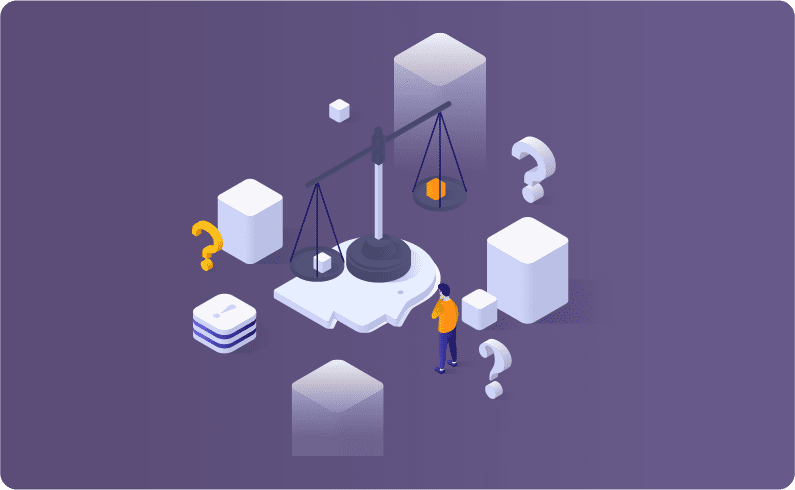Do you want your customer service team to take your customer service to the next level? All businesses know it is important, but not everyone can do it well.
First, you have to define what good customer service is, then convince the sales team and the other departments of your company to apply good customer service practices for it to have a major impact on your company’s bottom line.
If this is something that you want, you should ask your colleagues these questions:
What is good customer service?
What is bad customer service?
How will providing one or the other affect your company?
Their answers will reflect how well your company has oriented its employees about the significance of customer service. If there are members of your team who could not give a satisfactory answer, then help them realize how valuable providing excellent customer service could be.
What makes customer service GOOD?
One of the most important factors in providing a positive customer experience for your customers is for them to achieve their desired outcome.
They feel that this happens when their issues are resolved quickly and the customer service rep who assisted them had a “nice attitude.” Customers don’t necessarily have to always get their way, especially if their perceived solution would not help resolve their problems. Don’t look at customers who come to you with concerns as villains. Most of them are reasonable and can handle not always getting their way all the time.
The solution you give them might be contrary to what they believe but when they are explained clearly and with patience, customers tend to acknowledge that the reps are the ones with the expertise and they listen to the suggestions.
Avoid sounding condescending and make sure that you do not disregard their ideas. Make them feel that they are being listened to before you inform them of the right way to do things.
At the end of the day what they truly want is fast and convenient support, from customer service reps who treat them with respect. In response, they will show thanks and become loyal to your brand and your company.
87% share great customer service stories with others
45% post about their experiences on social media
35% will leave a review on sites like Yelp
52% will become repeat customers and continue to do business with your company
24% will choose you over your competitors
What makes customer service bad?
Knowing the benefits of providing good customer service, we strive to deliver the best service that we can. However, there are instances when our team members fail at their responsibilities and this can result in negative consequences for the business.
Knowing what constitutes bad customer service will help you and your team evaluate your standing and even reverse any negative effects that your faulty practices may have caused.
One of the most common examples of bad customer service is placing the customer on hold for several minutes. If your company is getting a large number of calls that makes your queue time too long, you might have to employ new reps to accommodate all your incoming calls. If you think you have sufficient reps but still get long queue times, it could be because your knowledge base is insufficient and your reps spend a long time looking for answers to queries.
Place a supervisor who can monitor your KPIs (key performance indicators) so you can pinpoint the problem and come up with a solution. If you want your solutions to be most effective, include your team in brainstorming for ways to improve their performance.
As mentioned previously, customers expect a certain level of respect when they contact your customer support. If a rep comes as rude and disrespectful your company’s customer support will already be tagged as bad and ineffective.
It is also important for your reps to sound confident and cheerful, even when they are uncertain about their answer. The best way to approach this situation is to ask for a minute while the rep looks for the right solution. Saying “I don’t know” is simply not acceptable.
Proper training is needed for your customer support reps to become efficient in their role. Training shouldn’t be just focused on product mastery; it should also include skills like staying positive and approaching issues with a can-do attitude.
Customer service can have good days and bad days. Some customers become too aggressive because of frustration however your support team should handle situations like these professionally. If a customer comes in too hot, reps should keep a cool head so as not to aggravate the situation. Being impolite is never acceptable for a customer service rep especially when a customer calls with regards to a complaint. It is the customer service rep’s responsibility to try and pacify the situation.
Customers who feel that they have been wronged expect the customer service rep to offer some kind of solace for their trouble. A customer support rep should be able to show empathy and acknowledge the inconvenience. If it is indeed the product that is at fault, the rep should apologize and offer a solution. If the problem is caused by the customer and not the company, the rep should not blame the customer, rather, he should explain why there was a problem and assist the customer, and still suggest a solution.
If agents follow a script without any emotional engagement, the customer might feel as if there’s no admission of responsibility or genuine apology.
Agents without proper listening skills can cause more frustration to a customer. Having to repeat information, again and again, can be annoying especially if a customer is already calling about a matter they don’t feel happy about.
Customers who call for support also do not feel happy when they get transferred to multiple people. Your support reps lose their credibility because it will look like they don’t know how to solve a problem or that you do not have agents who specialize in that area.
In case of a call interruption, there should also be a system that allows a customer to continue with their conversation without having to repeat every detail they have already narrated during the previous one.
There may be different reasons why customers call in to ask for customer support. Your role as a part of the customer support team is to make sure that their experience dealing with you is pleasant and that they are fully satisfied with the company’s products or services. If you do the opposite, you’ll be chasing customers away and destroying the image of your brand.
Supportbench unifies customer support, success, experience, knowledge management, and account management into one simple platform. Do more, with less, to maximize your retention.
Ready to provide excellent customer support? Contact us today!











